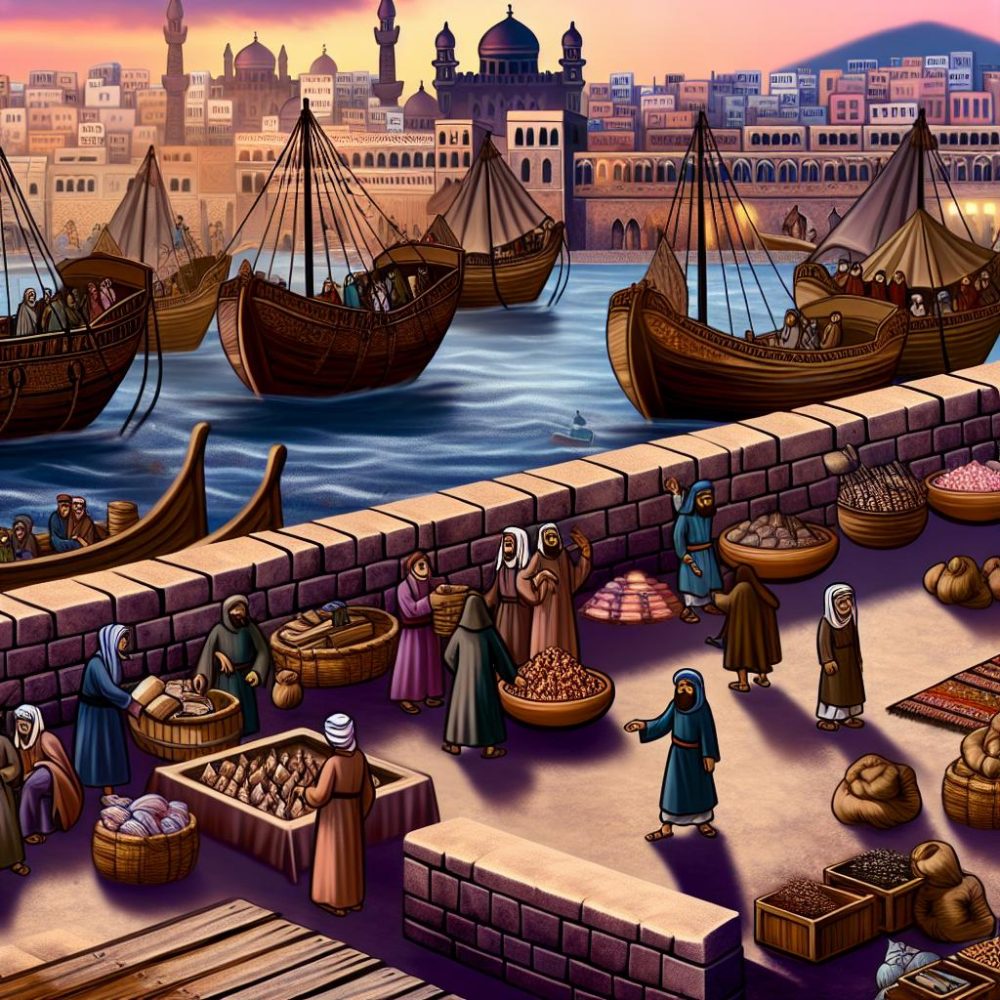
Introduction
In ancient times, ports were much more than mere points of arrival and departure. They were pivotal in the expansion of trade across diverse regions, acting as the beating heart of not only economic pursuits but also cultural exchanges and technological advancements. By examining their functions within historical contexts, we gain valuable insights into the broader dynamics of ancient trade systems that shaped civilizations.
The Strategic Importance of Ports
Ports, often located at natural harbors, river mouths, and accessible coastlines, served as crucial nodes in the intricate web of trade routes. Given their strategic placement, ports influenced both the economic prosperity and political clout of empires. For instance, the port city of Alexandria in Egypt was a linchpin for trade in the Mediterranean due to its prime location and infrastructure, while Carthage became a key player in the Western Mediterranean theater.
The capacity of a nation to manage and control these access points often amplified its influence over trade interactions. This control was paramount in establishing extensive trade networks. One such example is the renowned Silk Road, which was a vast intercontinental passageway that harmonized a series of ports and land routes, linking empires, cultures, and economies.
Ports as Economic Centers
Beyond their strategic advantages, ports were bustling centers of economic activity. They were equipped with facilities to load, unload, and store goods, often involving comprehensive warehousing and market systems that accommodated a myriad of traders. As a result, ports became beacons for commerce, attracting merchants from all corners of the world.
Various goods, from spices and textiles to valuable metals, found their way through these ports, fueling trade and fostering economic growth in port-associated cities. Such economic activities directly benefitted the regions through the generation of revenue from taxes and tariffs imposed on traded commodities. The vibrant commercial climate of ports contributed considerably to regional prosperity and development.
Cultural and Technological Exchange
The importance of ports extended beyond economic transactions to include a vibrant exchange of cultures, ideas, and technological innovations. Ports served as a melting pot, where merchants, sailors, scholars, and travelers brought together diverse knowledge and practices. This confluence often spurred advancements in numerous fields, including navigation, shipbuilding, and commerce.
Port cities emerged as cultural crossovers, where languages, religions, customs, and traditions not only met but thrived alongside each other. This rich tapestry of cultural intermingling nurtured the evolution of art, literature, and science, leaving a lasting impact on societies well beyond the immediate reach of these maritime hubs.
Challenges and Adaptation
However, the operation and prosperity of ports were not devoid of challenges. They were susceptible to diverse threats, including piracy, natural calamities, and political upheavals. To thrive amidst these adversities, ancient ports sought adaptive measures such as constructing robust fortifications, forging strategic alliances, and adopting cutting-edge nautical technologies.
Investments in infrastructure improvements like lighthouses and breakwaters were also crucial in enhancing the operational safety of ports, ensuring their sustained engagement in maritime traffic. These measures not only fortified the ports themselves but also augmented their appeal in attracting increased maritime engagement.
The multifaceted role of ports in ancient trade harmonized economic, cultural, and technological exchange. Their indispensable strategic position facilitated not just the flow of goods across empires but also the dissemination of revolutionary ideas that spurred significant development across civilizations. By delving into these elements, one can appreciate how the dynamic role of ancient ports contributed to constructing expansive trade networks and left a profound legacy on the course of history.